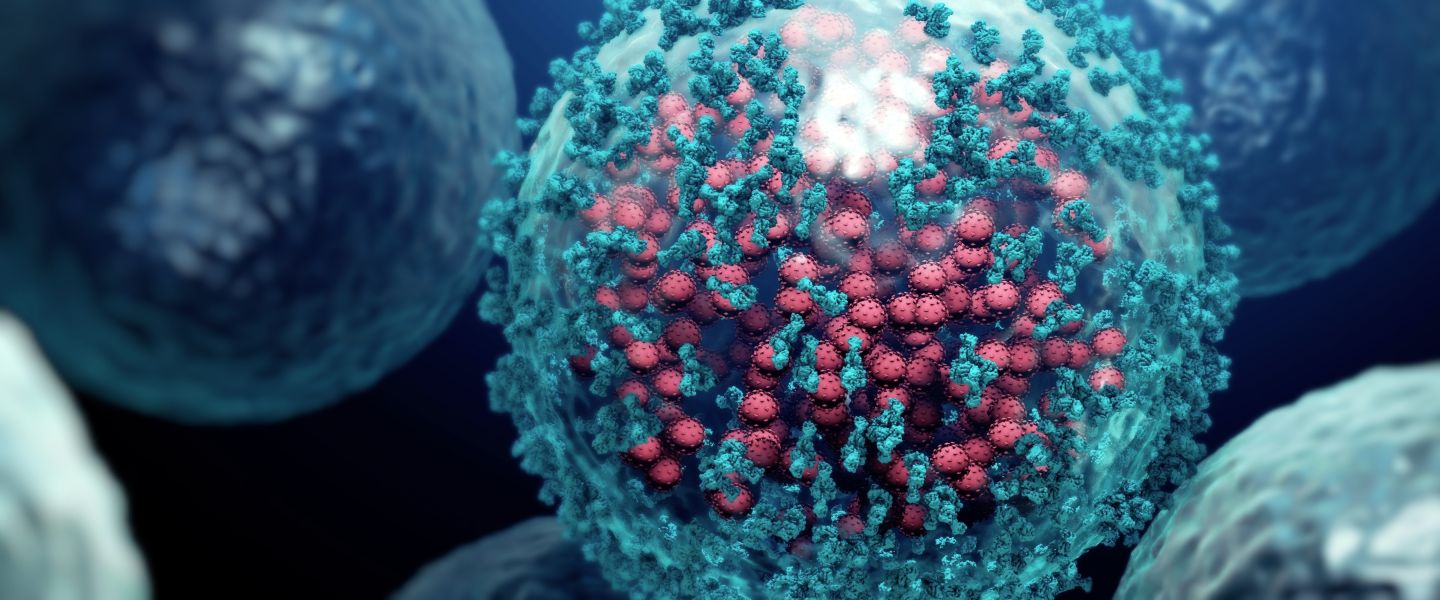SHARING / REPOSTING GUIDELINES: We're very happy to have posts/articles shared as direct links.
However, if you are replicating and re-posting information from this website or our posts, Abbey requests that you:
A) Only ever share articles in part (not in full). (eg. You can lift a paragraph as a way of introducing your readers to the topic) B) Be sure to always provide a direct link/URL back to the full original article here on the MyHealingCommunity.com website. Thanks in advance for your co-operation when sharing and re-posting any and all information that appears on this website.
Understanding the Potential Side Effects of Immunotherapy
Author Credit: The information in this post was originally shared to members of the Healing Cancer Study Support Group in July 2023. Permission to share the information here on MyHealingCommunity.com was granted by the author Dr. Daniel Thomas. See the sharing guidelines for this post above.
The Promise and Pitfalls of Immunotherapy: Overcoming Barriers for Cancer Patients
- Dr. Daniel Thomas, DO, MSWhen the first immunotherapy drug, ipilimumab (Yervoy), was FDA approved in 2011, immunotherapy was hailed as a "breakthrough" in cancer treatment. This much-anticipated new therapy harnessed the power of the body's immune system to fight cancer. Fast forward to today, and, unfortunately, only a minority of cancer patients genuinely benefit from immunotherapy in terms of tumor shrinkage, and even fewer experience long-term remission or cures as a result.
Why didn't immunotherapy live up to its hype?
It turns out that, just as cancer cells can be inherently chemoresistant or radioresistant (resistant to chemotherapy or radiation therapy) or can acquire chemoresistance or radioresistance, cancer cells can be inherently immunoresistant (resistant to immunotherapy) or can acquire immunoresistance. Also, just as there can be severe side effects with chemotherapy or radiation therapy, the same is valid for immunotherapy.
One of the potential side effects of immunotherapy is the development of autoimmune reactions. Autoimmune side effects occur when the immune system, stimulated to fight cancer cells, mistakenly attacks healthy cells and tissues in the body. This can lead to various autoimmune-related side effects, depending on the specific type of immunotherapy used and the organs or tissues being affected.
Some common autoimmune side effects of immunotherapy include:
· Dermatologic: Skin-related side effects such as rash, itching, or dry skin can occur. In more severe cases, blistering or peeling skin may develop.
· Gastrointestinal: Immunotherapy can cause inflammation in the gastrointestinal tract, leading to symptoms such as diarrhea, nausea, vomiting, abdominal pain, and, in severe cases, colitis.
· Hepatic: Liver inflammation or hepatitis may occur, leading to elevated liver enzymes, fatigue, and jaundice.
· Endocrine: The endocrine system can be affected by immunotherapy, resulting in hypothyroidism, hyperthyroidism, adrenal insufficiency, or type 1 diabetes.
· Pulmonary: Inflammation in the lungs, also known as pneumonitis, can cause symptoms such as shortness of breath, cough, and chest pain.
· Neurological: The nervous system may be affected, leading to side effects like headache, dizziness, muscle weakness, or more severe conditions like encephalitis or meningitis.
· Rheumatologic: Some patients may experience joint, muscle, or other rheumatologic symptoms.
· Hematologic: In rare cases, immunotherapy can lead to blood-related side effects such as anemia, thrombocytopenia, or neutropenia.
To combat immunoresistance and promote immune sensitization of cancer cells (sensitizing them to immunotherapy), and inhibit immunotherapy-induced autoimmunity, the following should be considered:
Suppression of interleukin-6 (IL-6): IL-6 is a cytokine, a type of signaling molecule produced by immune cells and other cell types in the body. IL-6 has various functions, including regulating immune responses, inflammation, and hematopoiesis (forming blood cells). In the context of tumors, IL-6 can play a significant role in promoting tumor growth, immune evasion, and cancer progression. Tumor cells and the surrounding cells in the tumour microenvironment can produce IL-6. IL-6 receptor blockade was found to increase the efficacy of immunotherapy while mitigating immunotherapy-induced autoimmunity. Compounds that have been found to inhibit IL-6 include curcumin, epigallocatechin-3-gallate (EGCG), Ganoderma lucidum (reishi mushroom), omega-3 fatty acids, quercetin, resveratrol, siltuximab, sulforaphane, and thalidomide.
Metabolic reprogramming using calorie-restriction mimetics: Calorie restriction refers to a dietary regimen that reduces calorie intake without causing malnutrition. Calorie restriction has been found to improve the function of immune cells, such as T cells and natural killer cells, and enhance their ability to target and kill cancer cells. Calorie restriction mimetics (CRMs) are compounds that can mimic physiological calorie restriction without reducing calorie intake. Examples include 2-deoxy-D-glucose, acarbose, EGCG, hydroxy citric acid, metformin, quercetin, rapamycin, and resveratrol. Emerging data has shown that using CRMs may serve as an essential adjuvant to immunotherapy.
Blocking of histamine receptor H1 (HRH1): Tumors can "polarize" cancer-killing M1 macrophages by changing them to cancer tumor-promoting and T-cell-inhibiting M2 macrophages (also known as tumor-associated macrophages or TAMs). High histamine levels in the tumor environment bind to HRH1 receptors on the surface of tumor-associated macrophages and contribute to the suppression of T-cell function, resulting in tumor resistance to immunotherapy. Antihistamines were found to block the histamine receptors on macrophages, thereby blocking their polarization from M1 to M2 macrophages, thus resulting in restored T-cell antitumor activity.
Overcoming the challenge of 'exhausted' T cells: T cells, also known as T lymphocytes, are a type of white blood cell that plays a central role in the immune system. They help protect the body against infections and diseases by recognizing and eliminating foreign invaders such as viruses, bacteria, parasites, and cancer cells. CD8+ T cells are the main "assassins" of cancer cells. They directly target and kill infected or cancerous cells by recognizing specific antigens (foreign substances) presented on the surface of these cells. Cytotoxic T cells release molecules like perforin and granzymes that induce apoptosis (programmed cell death) in the target cells.
Cancer immunotherapy depends on mobilizing T cells to target and eliminate tumor cells. T cells are not as effective against cancer as expected, however. A critical obstacle for immunotherapy is the decline in T cells' capacity to destroy, commonly known as exhaustion. Prolonged activation of the immune system, as seen in chronic viral infections or the gradual progression of cancer, or overstimulation of the immune system from immunotherapy, can cause T cells to tire and lose their effectiveness. T-cell exhaustion is a major pathway of resistance to immunotherapy.
Compounds that have been found to reinvigorate T cell function and possibly improve the efficacy of immunotherapy by sustaining the cytotoxic activity of T cells include creatine, curcumin, EGCG, Ganoderma lucidum (reishi mushroom), metformin, quercetin, resveratrol, statins, sulforaphane, thalidomide, and thymosin alpha 1 (Tα1).
Dr Daniel Thomas, DO, MS
Metabolic & Nutritional Medicine
Integrative Cancer Therapeutics
Mount Dora, Florida
References
Ahmed S, Marotte H, Kwan K, Ruth JH, Campbell PL, Rabquer BJ, Pakozdi A, Koch AE. Epigallocatechin-3-gallate inhibits IL-6 synthesis and suppresses trans-signaling by enhancing soluble gp130 production. Proc Natl Acad Sci U S A. 2008 Sep 23;105(38):14692-7.
Akhondzadeh F, Astani A, Najjari R, Samadi M, Rezvani ME, Zare F, Ranjbar AM, Safari F. Resveratrol suppresses interleukin-6 expression through activation of sirtuin 1 in hypertrophied H9c2 cardiomyoblasts. J Cell Physiol. 2020 Oct;235(10):6969-6977.
Chen L, Musa AE. Boosting immune system against cancer by resveratrol. Phytother Res. 2021 Oct;35(10):5514-5526.
Chen W, Padilla MT, Xu X, Desai D, Krzeminski J, Amin S, Lin Y. Quercetin inhibits multiple pathways involved in interleukin 6 secretion from human lung fibroblasts and activity in bronchial epithelial cell transformation induced by benzo[a]pyrene diol epoxide. Mol Carcinog. 2016 Nov;55(11):1858-1866.
Eikawa S, Nishida M, Mizukami S, Yamazaki C, Nakayama E, Udono H. Immune-mediated antitumor effect by type 2 diabetes drug, metformin. Proc Natl Acad Sci U S A. 2015 Feb 10;112(6):1809-14.
Eriau E, Paillet J, Kroemer G, Pol JG. Metabolic Reprogramming by Reduced Calorie Intake or Pharmacological Caloric Restriction Mimetics for Improved Cancer Immunotherapy. Cancers (Basel). 2021 Mar 12;13(6):1260.
Gasparello J, D'Aversa E, Papi C, Gambari L, Grigolo B, Borgatti M, Finotti A, Gambari R. Sulforaphane inhibits the expression of interleukin-6 and interleukin-8 induced in bronchial epithelial IB3-1 cells by exposure to the SARS-CoV-2 Spike protein. Phytomedicine. 2021 Jul;87:153583.
Ghandadi M, Sahebkar A. Curcumin: An Effective Inhibitor of Interleukin-6. Curr Pharm Des. 2017;23(6):921-931.
Guo Y, Ma B, Li X, Hui H, Zhou Y, Li N, Xie X. Omega-3 Polyunsaturated Fatty Acids can Reduce IL-6 and TNF Levels in Patients with Cancer. Br J Nutr. 2022 Mar 7:1-34.
Hailemichael Y, Johnson DH, Abdel-Wahab N, Foo WC, Bentebibel SE, Daher M, Haymaker C, Wani K, Saberian C, Ogata D, Kim ST, Nurieva R, Lazar AJ, Abu-Sbeih H, Fa'ak F, Mathew A, Wang Y, Falohun A, Trinh V, Zobniw C, Spillson C, Burks JK, Awiwi M, Elsayes K, Soto LS, Melendez BD, Davies MA, Wargo J, Curry J, Yee C, Lizee G, Singh S, Sharma P, Allison JP, Hwu P, Ekmekcioglu S, Diab A. Interleukin-6 blockade abrogates immunotherapy toxicity and promotes tumor immunity. Cancer Cell. 2022 May 9;40(5):509-523.e6.
Jing L, Lin J, Yang Y, Tao L, Li Y, Liu Z, Zhao Q, Diao A. Quercetin inhibiting the PD-1/PD-L1 interaction for immune-enhancing cancer chemopreventive agent. Phytother Res. 2021 Nov;35(11):6441-6451.
Kedar I, Mermershtain W, Ivgi H. Thalidomide reduces serum C-reactive protein and interleukin-6 and induces response to IL-2 in a fraction of metastatic renal cell cancer patients who failed IL-2-based therapy. Int J Cancer. 2004 Jun 10;110(2):260-5.
Li B, Yang L. Creatine in T Cell Antitumor Immunity and Cancer Immunotherapy. Nutrients. 2021 May 13;13(5):1633.
Li H, Xiao Y, Li Q, Yao J, Yuan X, Zhang Y, Yin X, Saito Y, Fan H, Li P, Kuo WL, Halpin A, Gibbons DL, Yagita H, Zhao Z, Pang D, Ren G, Yee C, Lee JJ, Yu D. The allergy mediator histamine confers resistance to immunotherapy in cancer patients via activation of the macrophage histamine receptor H1. Cancer Cell. 2022 Jan 10;40(1):36-52.e9.
Liu X, Yuan JP, Chung CK, Chen XJ. Antitumor activity of the sporoderm-broken germinating spores of Ganoderma lucidum. Cancer Lett. 2002 Aug 28;182(2):155-61.
Liu Y, Pan Y, Hu Z, Wu M, Wang C, Feng Z, Mao C, Tan Y, Liu Y, Chen L, Li M, Wang G, Yuan Z, Diao B, Wu Y, Chen Y. Thymosin Alpha 1 Reduces the Mortality of Severe Coronavirus Disease 2019 by Restoration of Lymphocytopenia and Reversion of Exhausted T Cells. Clin Infect Dis. 2020 Nov 19;71(16):2150-2157.
Ma X, Bi E, Lu Y, Su P, Huang C, Liu L, Wang Q, Yang M, Kalady MF, Qian J, Zhang A, Gupte AA, Hamilton DJ, Zheng C, Yi Q. Cholesterol Induces CD8+ T Cell Exhaustion in the Tumor Microenvironment. Cell Metab. 2019 Jul 2;30(1):143-156.e5.
Madeo F, Carmona-Gutierrez D, Hofer SJ, Kroemer G. Caloric Restriction Mimetics against Age-Associated Disease: Targets, Mechanisms, and Therapeutic Potential. Cell Metab. 2019 Mar 5;29(3):592-610.
Orlandella RM, Turbitt WJ, Gibson JT, Boi SK, Li P, Smith DL Jr, Norian LA. The Antidiabetic Agent Acarbose Improves Anti-PD-1 and Rapamycin Efficacy in Preclinical Renal Cancer. Cancers (Basel). 2020 Oct 6;12(10):2872.
Paul S, Sa G. Curcumin as an Adjuvant to Cancer Immunotherapy. Front Oncol. 2021 Aug 16;11:675923.
Ravindran Menon D, Li Y, Yamauchi T, Osborne DG, Vaddi PK, Wempe MF, Zhai Z, Fujita M. EGCG Inhibits Tumor Growth in Melanoma by Targeting JAK-STAT Signaling and Its Downstream PD-L1/PD-L2-PD1 Axis in Tumors and Enhancing Cytotoxic T-Cell Responses. Pharmaceuticals (Basel). 2021 Oct 26;14(11):1081.
Saraswat K, Kumar R, Rizvi SI. Glycolytic Inhibitor 2-Deoxy-D-Glucose at Chronic Low Dose Mimics Calorie Restriction in Rats Through Mitohormetic Induction of Reactive Oxygen Species. Rejuvenation Res. 2019 Oct;22(5):377-384.
Shen C, Zhang Z, Tian Y, Li F, Zhou L, Jiang W, Yang L, Zhang B, Wang L, Zhang Y. Sulforaphane enhances the antitumor response of chimeric antigen receptor T cells by regulating PD-1/PD-L1 pathway. BMC Med. 2021 Nov 25;19(1):283.
Słabicki M, Sperling AS. Repurposing the repurposed: thalidomide analogs as immune stimulants to overcome T cell exhaustion. Cell Chem Biol. 2022 Aug 18;29(8):1245-1247.
Smith DL Jr, Orlandella RM, Allison DB, Norian LA. Diabetes medications as potential calorie restriction mimetics-a focus on the alpha-glucosidase inhibitor acarbose. Geroscience. 2021 Jun;43(3):1123-1133.
Van Rhee F, Fayad L, Voorhees P, Furman R, Lonial S, Borghaei H, Sokol L, Crawford J, Cornfeld M, Qi M, Qin X, Herring J, Casper C, Kurzrock R. Siltuximab, a novel anti-interleukin-6 monoclonal antibody, for Castleman's disease. J Clin Oncol. 2010 Aug 10;28(23):3701-8.
Yi Fan, Wei Wang, Xuefang Wang, Liqin Yu, Yue Wei, Lei Wei, Xiaoyang Xie, Xiao Li. Ganoderma lucidum polysaccharide inhibits LPS-induced inflammatory injury to mammary epithelial cells. Journal of Future Foods, Volume 3, Issue 1, 2023, Pages 49-54.
Zhang Z, Liu S, Zhang B, Qiao L, Zhang Y, Zhang Y. T Cell Dysfunction and Exhaustion in Cancer. Front Cell Dev Biol. 2020 Feb 11;8:17.
Disclaimer:
This information is for educational purposes only and not intended or implied to be personal medical advice. That is for your personal physician to provide after he or she carefully studies the references above.
DISCLAIMER: Any and all information in this post was gathered from published research in cell lines or animals, or from typical clinical use. It may not be complete, may not have not been verified in humans, and is NOT meant or given as medical advice, but only as a guide to further exploration.







